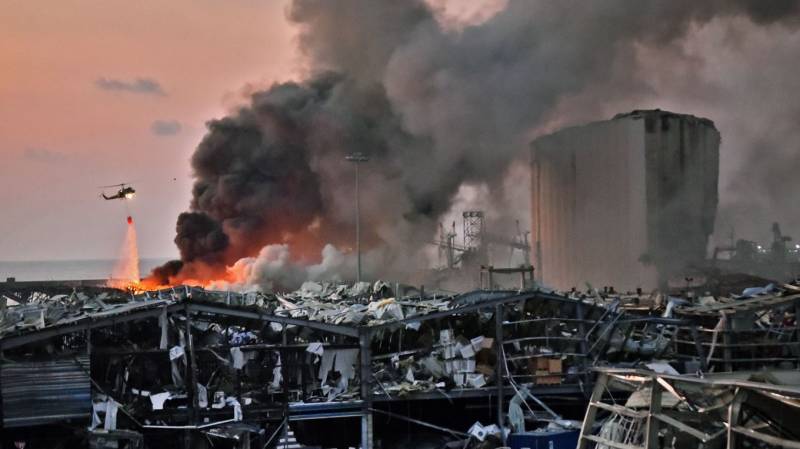Ammonium nitrate: fertilizer behind many industrial accidents

Stay tuned with 24 News HD Android App

Ammonium nitrate, which Lebanese authorities have said caused the devastating Beirut blast, is an odorless crystalline substance commonly used as a fertilizer and has caused numerous industrial explosions over the decades.
These notably include one at a Texas fertilizer plant in 2013 that killed 15 and was ruled deliberate, and a North Korean railway blast that left 161 dead in 2004. When combined with fuel oils, ammonium nitrate creates a potent explosive widely used in the construction industry, but also by insurgent groups such as the Taliban for improvised explosives.
Two tonnes of it were used to create the bomb in the 1995 Oklahoma City attack that destroyed a federal building, leaving 168 people dead. Lebanese Prime Minister Hassan Diab said 2,750 metric tons of ammonium nitrate that had been stored for years in a Beirut portside warehouse had exploded, killing dozens of people and causing widespread damage to the capital.
Ammonium nitrate was among the chemicals stored in a warehouse in China's northern city of Tianjin that ignited in 2015, triggering a blast that killed at least 165 people and caused over $1 billion in damages.
An investigation found improper storage of the chemicals was to blame. In agriculture, ammonium nitrate fertilizer is applied in granule form and quickly dissolves under moisture, allowing nitrogen -- which is key to plant growth -- to be released into the soil.
Incomplete reaction
However, under normal storage conditions and without very high heat, it is difficult to ignite ammonium nitrate, Jimmie Oxley, a chemistry professor at the University of Rhode Island, told AFP.
"If you look at the video (of the Beirut explosion), you saw the black smoke, you saw the red smoke -- that was an incomplete reaction," she said. "I am assuming that there was a small explosion that instigated the reaction of the ammonium nitrate -- whether that small explosion was an accident or something on purpose I haven't heard yet."
That is because ammonium nitrate is an oxidizer -- it intensifies combustion and allows other substances to ignite more readily, but is not itself very combustible. For these reasons, there are generally very strict rules about where it can be stored: for example, it must be kept away from fuels and sources of heat.
In fact, many countries in the European Union require that calcium carbonate to be added to ammonium nitrate to create calcium ammonium nitrate, which is safer. In the United States, regulations were tightened significantly after the Oklahoma City attack.
Under the Chemical Facility Anti-Terrorism Standards, for example, facilities that store more than 2,000 pounds (900 kilograms) of ammonium nitrate are subject to inspections.
Despite its dangers, Oxley said legitimate uses of ammonium nitrate in agriculture and construction have made it indispensable. "We wouldn't have this modern world without explosives, and we wouldn't feed the population we have today without ammonium nitrate fertilizer," she said. "We need ammonium nitrate, we just need to pay good attention to what we're doing with it."
